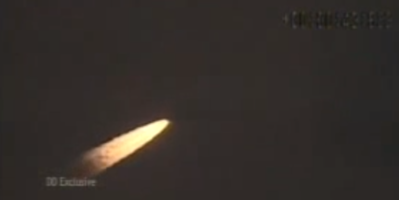Will the Mars Curiosity Rover Suffer the Phobos Effect?
Up to this point we had been amazed by the Mars Science Laboratory (MSL) nicknamed Curiosity. Even after the project manager had announced an unprecedented discovery late 2012 and later retracted. [A common attitude of space scientists under the grasp of the official agency and its subsidiaries.] Despite the disappointment, the MSL robot continued its work on the red planet Mars. The project managers had the MSL do test drilling for practice and then they moved on performing the actual drill last February. The sample rock was to be taken inside the robot to be analyzed by its instruments.
So we all thought the MSL was going to have some progress in order to know what Mars soil is made of. But lo and behold, the Mars Curiosity robot has just suddenly suffered a computer malfunction just when expectation had been raised about actually finding something tangible. According to the official press release from the MSL website, the robot suffered a “memory issue”, the main computer was switched to a back up computer so the rover is now working on “safe mode”. As a consequence, “It did not send recorded data, only current status information”, said the JPL team in charge of the MSL. This means the data from the samples being analyzed was not sent. The team states that they are working to fix the “anomaly.”
So far in space exploration when previous probes have been about to discover something of relevance about Mars or its moon Phobos, they have malfunctioned. So we wonder whether the same effect will be suffered by the MSL.
Let’s wait and see what happens to this expensive piece of…. equipment.
You can read more about the Phobos effect here.
Update 3/23/2013
We now know that the MSL team recovered the data. It’s been stated from the analysis of the rocks on the planet that “ancient Mars could have harbored life”. We will wait to see what further analyses are made, and if they are not reverted or discarded as compromised data as has happened with previous Mars missions.
For more about the Red Planet, visit our Mars Page.




